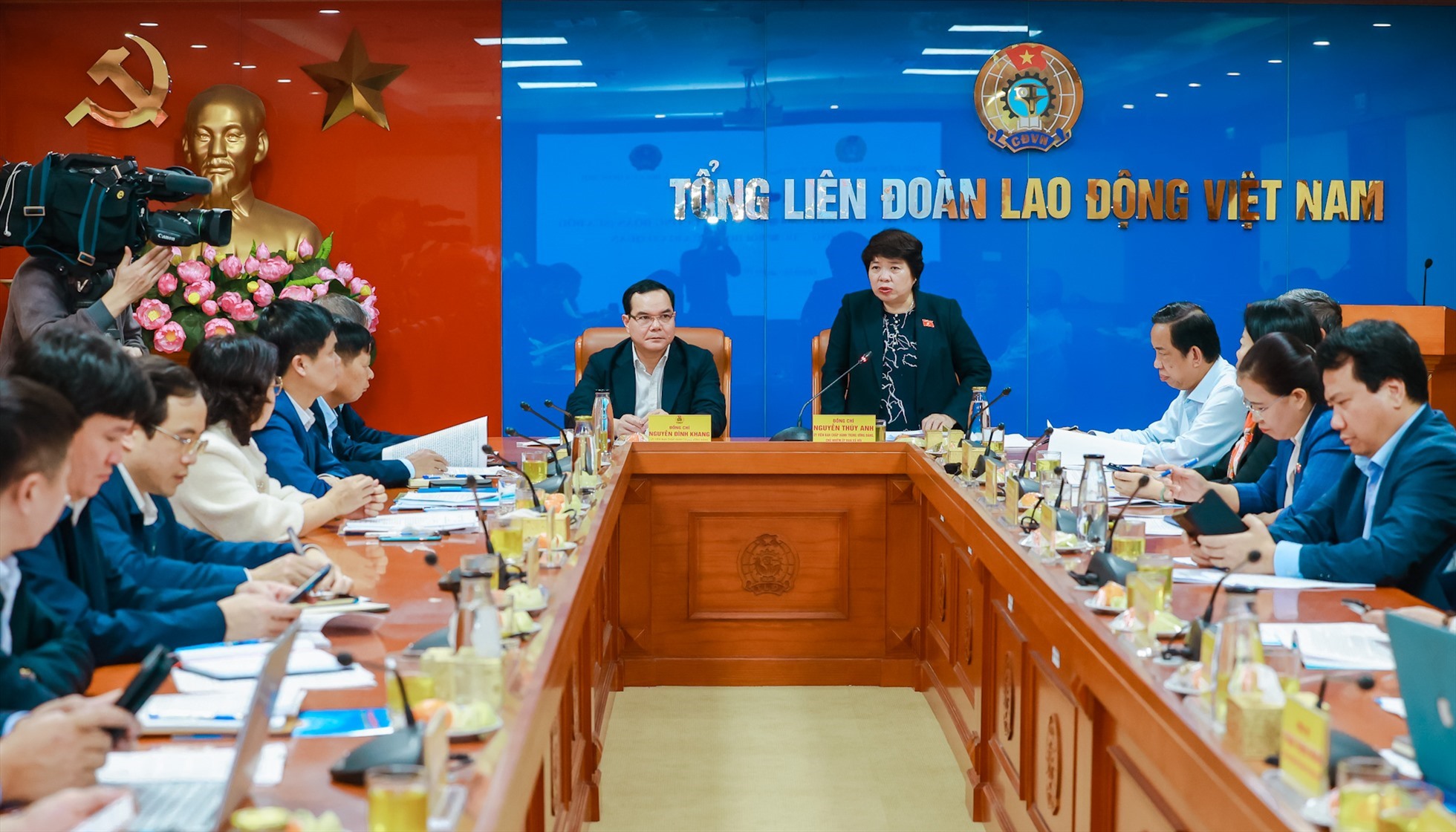Summary of 7 Key Highlights in the 2024 Vietnam Trade Union Law
10/06/2025
At the 8th Session of the 15th National Assembly, the amended Trade Union Law 2024 was officially passed, replacing the 2012 Trade Union Law. The new law comprises 6 chapters and 37 articles, 4 more than the previous version, and will take effect from July 1, 2025. Below are 7 important changes in the 2024 Trade Union Law that workers, businesses, and trade union organizations need to pay attention to:

1. Foreign workers are allowed to join Vietnamese trade unions
A notable change in Article 5 is the expansion of eligible members of the Vietnamese trade union. In addition to Vietnamese workers, foreign nationals working in Vietnam under a labor contract of 12 months or more are also entitled to join grassroots trade unions. This provision reflects Vietnam’s integration efforts and ensures equal rights for both domestic and international labor forces. Vietnam Trade Union Law
2. New provisions on exemption, reduction, and temporary suspension of trade union dues
Article 30 of the 2024 Trade Union Law clearly outlines the cases where organizations and businesses may be exempted from, receive a reduction in, or temporarily suspend paying trade union dues, as follows: Vietnam Trade Union Law
- Exemption: When a business, cooperative, or cooperative alliance is dissolved or goes bankrupt.
- Reduction: In the event of financial difficulties or due to force majeure events.
- Temporary suspension: When production or business is halted, and the company lacks financial capacity, suspension can last up to 12 months.
After the suspension period, the company must make up the payments no later than the end of the following month. This mechanism helps enterprises flexibly respond to economic fluctuations while still maintaining financial obligations to trade unions. Vietnam Trade Union Law
3. Maintain 2% union dues, enhance financial transparency
According to Article 29, the contribution rate to trade union dues remains at 2% of the salary fund used as the basis for social insurance contributions. However, the new law supplements and clarifies the principles for managing and using trade union finances, along with specific expenditure tasks, aiming to improve efficiency and transparency.
4. A clearly defined four-tier trade union structure
Article 8 of the 2024 Trade Union Law clearly defines the four-tier trade union organization structure: Vietnam Trade Union Law
- Central level: Vietnam General Confederation of Labor (VGCL)
- Provincial/Central sector level: Includes provincial labor federations, national sector trade unions, trade unions of economic groups and state-owned corporations under VGCL
- Intermediate level: Includes district-level labor federations, local sector trade unions, trade unions in industrial parks, export processing zones, high-tech zones, and other direct higher-level unions as per regulations
- Grassroots level: Includes grassroots trade unions and grassroots labor unions
The VGCL holds the authority to establish, define the levels of trade unions, and guide organizational models to align with workers’ needs and socio-economic development. Vietnam Trade Union Law
5. Additional authority for supervision and social criticism by trade unions
Articles 16 and 17 enhance the role of trade unions in social supervision and criticism:
- Supervision: Trade unions may participate in supervision with state authorities by the 2015 Law on the Vietnam Fatherland Front, or lead independent supervision efforts on labor, wages, insurance, occupational safety, workplace democracy, and other labor-related policies.
- Social criticism: Trade unions have the right to provide feedback on draft legal documents, programs, plans, and projects that directly affect union members and workers.c
Reasonable feedback will be reviewed and considered by the relevant government authorities, following the law.
6. Decentralized collection and distribution of union dues
According to Article 31, the new law stipulates that the VGCL is responsible for collecting and allocating union dues to lower-level unions based on organizational scale and the number of workers participating in social insurance. In enterprises with organized labor unions, the distribution will be based on membership count, contribution rates, and total workforce under social insurance. Vietnam Trade Union Law
7. Trade union financial reporting responsibility to the National Assembly
For the first time, the Trade Union Law assigns the VGCL the responsibility to report to the National Assembly every two years on the collection, spending, management, and use of trade union funds (Article 33). Additionally, the State Audit will conduct biennial audits, in parallel with the VGCL’s report. It may carry out ad hoc audits upon request from the National Assembly or its Standing Committee. Vietnam Trade Union Law

What should businesses do to adapt?
The 2024 Trade Union Law not only expands workers’ rights but also requires businesses to prepare thoroughly in terms of internal policy, finances, and coordination processes with internal trade unions. Vietnam Trade Union Law
NIC Global – with over 20 years of experience in human resources, labor law, and enterprise support services – is ready to support your business in:
- Timely updates on new legal regulations
- Consulting on adjusting HR and labor processes to comply with the 2024 Trade Union Law
- Supporting the development of harmonious, sustainable labor relations
👉 Contact NIC Global for expert consultation!

For contact and support:
Facebook: NIC Global – Human Resource Solutions
LinkedIn: NIC Global Sourcing JSC
Website: www.nicvn.com
Email: info@nicvn.com
Hotline: 0981.23.43.76
Address:
- Hanoi Office: No. 3A Thi Sach, Pham Dinh Ho Ward, Hai Ba Trung District, Hanoi, Vietnam
- Ho Chi Minh City Office: Dakao Center Building, 35 Mac Dinh Chi, District 1, Ho Chi Minh City, Vietnam
See more:
Payroll service
Staffing service
EOR service





